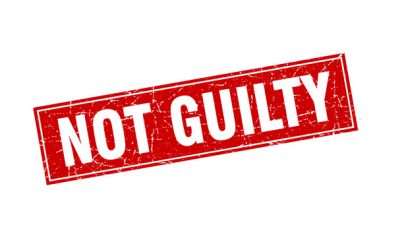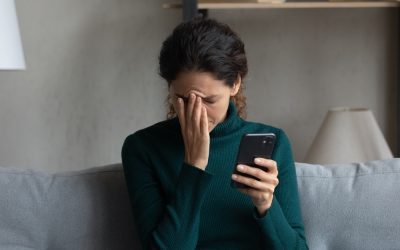
The short answer is “no.” You cannot be charged with a DUI without evidence. However, don’t underestimate the state’s ability to find evidence that could lead to a conviction! They do not need strong evidence like a breath or blood test to convict you of DUI.
A Los Angeles DUI lawyer can provide the information and counsel you need to understand your situation. If you are charged with a DUI, an attorney can also mount a strong defense and fight to get your charges dropped.
You Can’t Be Charged With a DUI Without Evidence
If there’s no evidence against you for your DUI case, or any crime for that matter, you have nothing to worry about. That’s because the prosecution needs proof to prove that you committed a crime to convict you.
You may have heard that the legal BAC limit in California is 0.08%. While this is true, California Vehicle Code (CVC) §23152(a) makes it illegal to drive under the influence of alcohol without regard to a specific BAC. Therefore, a chemical test to determine your BAC isn’t a strict requirement to be charged with a DUI.
You shouldn’t assume that just because they haven’t performed a chemical test, then you cannot be charged or convicted with DUI. Even if you think the police have no evidence, you should contact a DUI defense attorney if you get arrested for DUI.
Types of Evidence in a DUI Case
It is a mistake to believe the only evidence the prosecution can use against you in a DUI case is a chemical test of your blood alcohol concentration (BAC). Prosecutors can use multiple types of evidence to prove a DUI case, including, but not limited to, the following:
- Chemical blood tests (breath, blood, urine, etc.)
- Field sobriety tests (FSTs)
- Officer testimony
- Physical evidence (e.g., a bottle of alcohol in the cupholder)
- Video evidence of your driving behavior
Prosecutors typically build cases around more than one piece of evidence. This is why refusing to conduct a chemical test does not guarantee that you’ll avoid a DUI conviction. Don’t assume the prosecution cannot charge you with DUI without evidence. They may have more than you think.
Refusing a Chemical Test Can Cause Additional Problems
Before you get arrested for a DUI, the police may ask you to perform a preliminary alcohol screening (PAS). Typically, you are legally allowed to refuse the request with no consequences. The ability to refuse a test of your BAC changes if:
- You are on probation for a previous DUI offense.
- You are a driver under the age of 21.
- You have previously been arrested for a DUI.
If you meet any of these conditions, you may face additional penalties if you refuse to submit to testing. A chemical test refusal at this stage becomes a sentence enhancement, meaning you face:
- More time in jail
- More time without your license
- Extra mandatory DUI classes
The specific increases will depend on your DUI conviction history. The more DUIs you have on your record for the past ten years, the harsher penalties you may face. You’ll want to work with a skilled lawyer if you’re facing a DUI charge with or without an enhanced sentence.
Field Sobriety Tests Are Not Mandatory
The results of a field sobriety test (FST) can be a convincing piece of evidence to members of a jury. However, you should know you can refuse a field sobriety test. If you did partake in an FST, a lawyer can help you dispute the results.
Like a PAS, an officer may not compel you to perform an FST. You may politely decline any request to perform an FST, and you do not have to explain your refusal. FSTs can show signs of inebriation, but they have a lot of false positives.
An attorney may be able to successfully challenge the results by showing:
- You were tired.
- You have a medical condition.
- The officer was unclear in their instructions.
If you did agree to an FST, let your lawyer know what you remember about the experience, as it may allow them to have that part of the officer’s testimony excluded from the trial.
Fighting the Evidence Against You in a DUI Case
While many forms of evidence may be used against you in a DUI, not all may be permitted in your case. If there is an error in how a piece of evidence was gathered, your lawyer may be able to invoke the exclusionary rule and submit a motion to suppress it.
Errors that might occur in a DUI case include:
- Improperly stopping you
- Failing to have probable cause to make the arrest
- Conducting an illegal search
- Missteps in the chain of evidence
How Evidence Suppression Can Improve Your Case Outcome
When evidence is successfully challenged, it can weaken the prosecutor’s chances of securing a victory. As more evidence is suppressed, you improve your likelihood of dropping your charges or receiving a plea deal for a downgraded charge, such as public drunkenness, open container, or wet reckless driving.
Having evidence suppressed is not easy. First, you must understand the rules of evidence to challenge it properly, so it is critical to have an experienced lawyer working on your side. If your lawyer successfully argues that the evidence was gained improperly, it may not be used to convict you of a DUI.
That said, suppressing evidence can take much effort and time. To ensure your lawyer has enough time to investigate your case and take the steps required to get your charges dropped, you’ll want to contact an attorney as soon as possible after your arrest.
Don’t Fight Against Your DUI Charges Alone
Facing a DUI charge can be incredibly stressful and frightening, especially if it isn’t your first offense. You’ll want to contact a Los Angeles DUI lawyer for help. They’ll provide the guidance you need to understand your case and avoid the consequences of a conviction.
Contact us today to meet with an experienced DUI attorney and learn more about the DUI defense process. A lawyer can answer any questions and determine if you can be charged with a DUI without evidence. We look forward to hearing from you soon.







